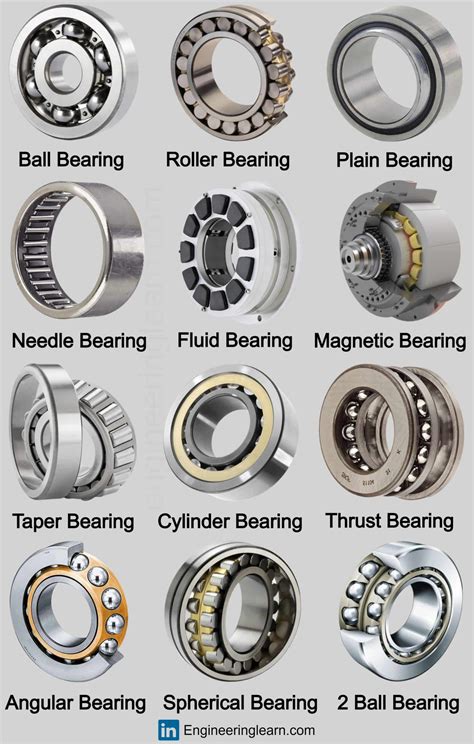The Importance of Bearings: A Comprehensive Guide
Bearings are mechanical components that allow for the smooth and efficient rotation of shafts and other moving parts. They are found in a wide range of applications, from automotive engines to industrial machinery.
The global bearings market is expected to reach USD 223.01 billion by 2027, exhibiting a CAGR of 6.3% during the forecast period. Grand View Research
| Type of Bearing |
Applications |
| Ball Bearings |
Electric motors, fans, pumps |
| Roller Bearings |
Conveyor systems, heavy machinery |
| Needle Bearings |
Automotive transmissions, sewing machines |
| Bearing Material |
Properties |
| Steel |
High strength, durability |
| Ceramic |
Low friction, high-temperature resistance |
| Polymer |
Lightweight, corrosion-resistant |
Why Bearings Matter
-
Reduce Friction: Bearings minimize friction between moving parts, allowing for smoother and more efficient operation.
-
Increase Load Capacity: Bearings distribute loads evenly, reducing stress on other components and extending the life of equipment.
-
Improve Accuracy: Bearings ensure precise alignment of shafts and other components, reducing vibration and improving overall performance.
Key Benefits of Bearings
-
Increased Efficiency: Reduced friction leads to lower energy consumption and operating costs.
-
Extended Equipment Life: Proper load distribution reduces wear and tear on other components.
-
Improved Safety: Bearings help prevent accidents by reducing vibration and noise.
Success Stories:
-
Automotive Manufacturer: By upgrading to high-performance bearings, a major automotive manufacturer increased fuel efficiency by 5%.
-
Industrial Plant: A power plant replaced old bearings with new ceramic bearings, resulting in a 30% reduction in maintenance costs.
-
Manufacturing Facility: A factory automated its production line using bearings, increasing output by 20%.
Effective Strategies for Using Bearings
-
Choose the Right Bearing: Consider the type of load, speed, and operating environment to select the appropriate bearing.
-
Proper Installation: Ensure that bearings are correctly fitted, lubricated, and aligned.
-
Regular Maintenance: Regularly inspect bearings for wear and tear, and replace them as needed.
Common Mistakes to Avoid
-
Overloading: Avoid exceeding the maximum load capacity of bearings to prevent damage.
-
Poor Lubrication: Insufficient lubrication can lead to increased friction and premature bearing failure.
-
Improper Alignment: Misalignment can cause vibration and excessive wear on components.
FAQs About Bearings
Q: What is the lifespan of a bearing?
A: The lifespan of a bearing depends on various factors, such as operating conditions, load, and maintenance.

Q: How often should I replace bearings?
A: Bearings should be replaced when they show signs of wear or damage, or as per the manufacturer's recommendations.
Q: Can bearings be repaired?
A: Bearings can sometimes be repaired if the damage is not severe. However, it is often more cost-effective to replace them.
